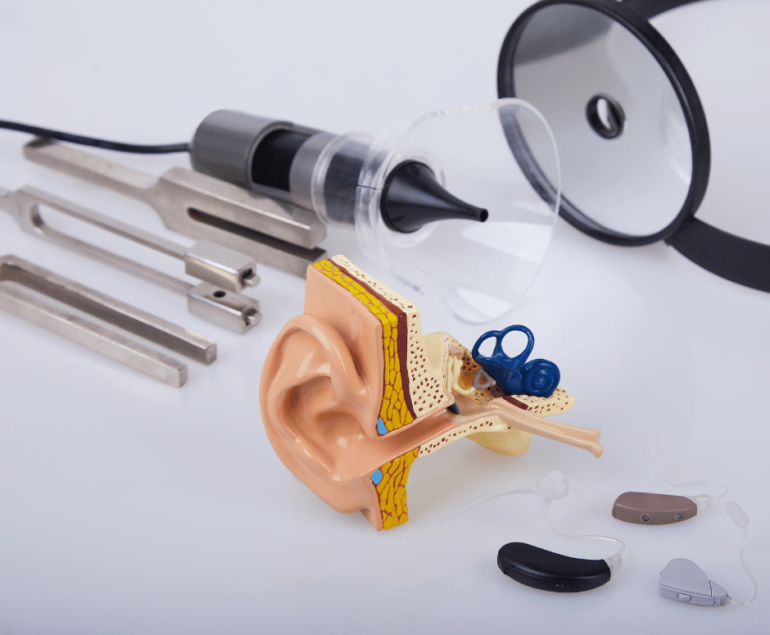Introduction
Climate change, a pressing global issue, extends its reach beyond melting ice caps and changing weather patterns. In this article, we delve into a specific concern: “The Effects of Climate Change on Respiratory Health.” As an ENT Surgeon, Dr. Vivek Kumar Pathak provides valuable insights into how our changing climate impacts the well-being of our respiratory systems.
Understanding Climate Change
Climate change results from various factors, including human activities and natural processes. Its far-reaching consequences touch every aspect of our lives, with health being a critical concern on this expansive list.
Respiratory Health Basics
Before we explore the nexus between climate change and respiratory health, let’s establish a foundation by understanding the basics of the respiratory system. This intricate system plays a pivotal role in sustaining life, emphasizing the need for its optimal functioning.
Linking Climate Change to Respiratory Issues
One of the profound effects of climate change manifests in the alteration of air quality. The rise in temperatures and increased air pollution levels significantly impact respiratory health, leading to a surge in respiratory diseases.
Effects of Air Pollution
Particulate matter, a common component of air pollution, poses severe threats to respiratory health. Understanding the direct correlation between pollution and respiratory issues is crucial in comprehending the gravity of the situation.
Changing Allergen Patterns
Climate change alters the patterns of allergens, affecting individuals prone to allergies. Dr. Vivek Kumar Pathak sheds light on how these changes contribute to an upsurge in respiratory distress, especially during heightened pollen seasons.
Extreme Weather Events
The frequency and intensity of extreme weather events associated with climate change have immediate and long-term consequences on respiratory health. From wildfires to hurricanes, the impact is profound, affecting vulnerable populations the most.
Vulnerable Populations
Children, the elderly, and those with pre-existing respiratory conditions face heightened susceptibility to climate-induced respiratory issues. Dr. Vivek Kumar Pathak shares his observations, drawing attention to the urgency of addressing this vulnerable demographic.
Global Efforts in Combating Climate Change
International agreements and initiatives play a crucial role in mitigating climate change. Examining their impact on respiratory health globally emphasizes the need for collaborative efforts to safeguard the well-being of populations worldwide.
Adaptation and Prevention Strategies
As individuals, we can take proactive measures to safeguard our respiratory health. From lifestyle choices to supporting community and global initiatives, this section provides a roadmap for adapting to and preventing climate-induced respiratory issues.
Dr. Vivek Kumar Pathak’s Perspective
Drawing on his experience as an ENT Surgeon, Dr. Vivek Kumar Pathak shares real-life cases and observations, offering a unique perspective on the intersection of climate change and respiratory health. His insights highlight the immediate need for action.
Taking Action: What You Can Do
Individual responsibility is paramount in addressing climate change and its impact on respiratory health. This section outlines practical steps readers can take to contribute to a healthier future.
The Role of Technology
Innovations in healthcare and technology contribute significantly to managing respiratory issues stemming from climate change. From air quality monitoring to medical advancements, technology plays a pivotal role in our fight against climate-induced health challenges.
Educational Initiatives
Raising awareness about the link between climate change and respiratory health is pivotal. Education serves as a potent tool in prevention, and initiatives to inform the public about these connections are essential.
Conclusion
In conclusion, the effects of climate change on respiratory health are undeniable. We’ve explored the intricate web connecting rising temperatures, air pollution, extreme weather events, and vulnerable populations. Urgent action is needed to mitigate these effects and secure a healthier future for all.
FAQs
- How does climate change directly impact respiratory health?
- Climate change leads to increased air pollution, extreme weather events, and changing allergen patterns, all of which contribute to a rise in respiratory issues.
- Why are vulnerable populations more affected by climate-induced respiratory issues?
- Vulnerable populations, including children and the elderly, are more susceptible due to weakened immune systems and pre-existing conditions.
- What role can individuals play in preventing climate-induced respiratory problems?
- Individuals can take proactive measures like reducing carbon footprint, supporting green initiatives, and adopting a healthier lifestyle.
- How does technology contribute to managing respiratory issues related to climate change?
- Technology aids in air quality monitoring, medical advancements, and innovations that enhance our ability to manage and treat climate-induced respiratory problems.
- What educational initiatives can help raise awareness about climate change and respiratory health?
- Educational programs, campaigns, and awareness drives are crucial in informing the public about the connections between climate change and respiratory health.
About Author:
Dr. Vivek Kumar Pathak: Renowned ENT Surgeon, Senior Professor, and Founder.
Dr. Pathak, ENT surgeon at Kailash Hospital, Senior ENT Professor at Sharda University, and founder of Entegrity Care, brings expertise and innovation to healthcare. Discover the visionary behind Doxtreat Healthcare, shaping the future of ENT care.
Website www.drvivekpathak.com
Call +917838450942
WhatsApp +91 78384 50942
Book an appointment with Dr. Vivek kumar Pathak by filling the form.


